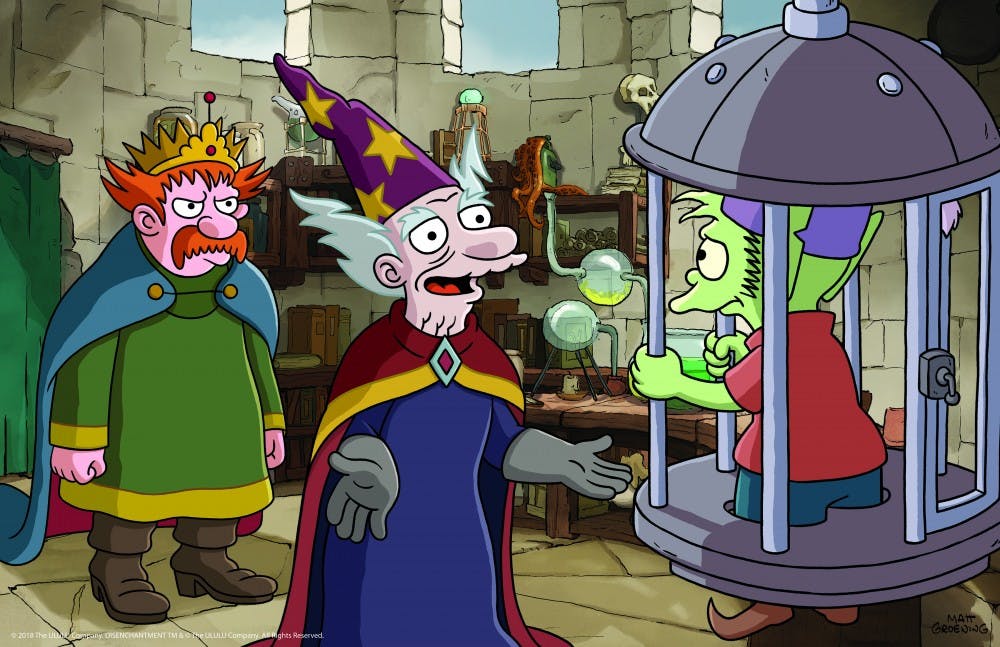“Things get confusing in a world with occasional magic and curses,” complains one villager in Disenchantment, Matt Groening’s newest Netflix endeavor. “While I am a fan of such worlds, I just feel some rules for what can and cannot happen would help us—" (then, he is promptly killed by a Viking soldier).
This is one of the funnier jokes in the first season, and hits the nail on the head in a bit of self–referential humor. However, the series is cluttered with unclear ideas and conceptions of fantasy tropes, and can’t seem to pick a direction between the mild one–liners and unsatisfying narrative arcs.
Princess Tiabeanie, voiced by Abbi Jacobson of Broad City, sits in the middle of this medieval cacophony, joined by her hapless friends Elfo and Luci, an elf and a demon, respectively. They wander from adventure to adventure, but never seem to stray too far from the castle which Princess Bean (as she is known) hails from.
Bean is the common disaffected teenager who yearns for a fate other than what is set out for her. The show covers her entering maturity and narrowly avoiding an arranged marriage by killing her fiancé and turning the next in line into a pig. What her true passion is, is unclear. For the moment, it seems only to focus on drinking and seducing village men, only to see their heads cut off the next morning by her ruthless but caring father King Zøg. She is burdened by her own personal demon Luci (voiced by Eric Andre) who badgers her to commit sins for an episode, then becomes generally ineffective and often confused with a common housecat.
Elfo also has dreams outside of what he was born for, having come from the happiest place in Dreamland, the idyllic and hidden land of Elfwood. Everybody there is perfectly happy and named appropriately after their chosen role, like Worko, Singo, and Shocko (another one of the few jokes that actually works but is quickly dropped). He leaves to find something other than constant happiness, but immediately drops that personal search with no explanation and instead falls head over heels for Princess Bean.
This unlikely pairing plagues the first season. Nobody enjoys watching a relationship that clearly will not work, and it rarely adds laughs or emotional depth. It’s a tired format, and considering it’s between two of the three main characters, the groan–inducing subplot is inescapable.
Abbi Jacobson is one of the best parts of the series, and manages to play the standard teenager with a tragic longing and rebellion with sincerity and humor. Unfortunately, she is never given enough of the punchlines to show off her comedic chops. She convinces audiences that she is genuine through her displeasure in her royal duties, despite having the best life affordable at the time, but is rarely given the chance to add some of her natural charm to the part.
Disenchantment attempts to fuse comedy and narrative, fantasy, and parody, but its connections are far too loose. For example, there are hints at a secret plot behind Luci’s appearance, but within the first season the idea is hardly addressed and affects nothing. Meanwhile, a new conspiracy rears its head immediately following a major plot point, softening both concepts and leaving neither with much narrative focus. The plot is messy, the jokes are chuckle–worthy, and the characters are fun but ultimately garner neither long–term investment nor actual hilarity. Disenchantment, as the title suggests, fails to enchant, but can provide some passing entertainment while you wait for the next seasons of Brooklyn Nine–Nine or Broad City.







